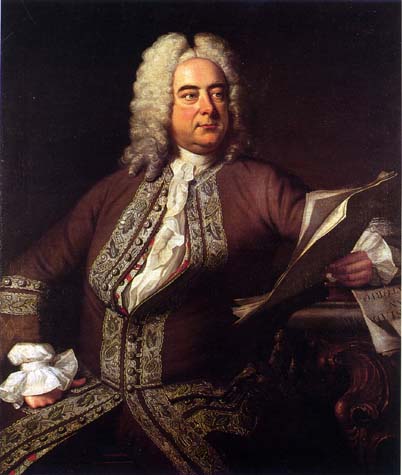Superb soloists bring human immediacy to Houston Symphony’s “Messiah”

Handel’s Messiah was performed by the Houston Symphony Friday night.
For all the power of Handel’s Messiah, the tradition of performing the iconic oratorio in December has a big drawback: Parts 2 and 3, with their discussion of smiters, spitting, iniquities and such, can seem out-of-place amid the festivities of Christmastime. No wonder Handel himself performed Messiah around the more-penitent Easter season.
But conductor Nicholas McGegan found a way through the oratorio’s starkly varied elements Friday, when he led the annual Messiah by the Houston Symphony and Houston Symphony Chorus at Jones Hall.
Using his own abridged edition, the longtime Handel specialist crafted a performance that not only told Jesus’s story with sweep and vigor, but emphasized the hopefulness that shines through the oratorio’s latter parts.
With the orchestra reduced to chamber size, McGegan invested the overture with a crispness and momentum that heralded a fast-paced account. Tenor Benjamin Butterfield as the first vocal soloist took the next step in setting the performance’s tone.
Butterfield’s bright, fluent singing and crystal-clear diction put the message of Handel’s music and Charles Jennens’ text in the forefront. He began “Comfort ye” sweetly, then his voice roused as he invoked the voice calling out in the wilderness; much of the time, Butterfield’s score remained closed, and he gazed out to his listeners like an adroit orator.
Butterfield embellished Handel’s vocal line generously–as all Friday’s soloists did–and his flourishes heightened the exuberance of “Ev’ry valley.” Even though the ornaments weren’t always note-for-note distinct, their vigor came through.
In the sequence describing Jesus’ sufferings, Butterfield’s vividness harkened back to Handel’s theatrical roots. “Thy rebuke” was mainly hushed and plaintive; in “Behold, and see,” Butterfield spoke out more urgently. And his ring and decisiveness captured the optimism of “But thou didst not leave His soul in hell.”
Handel called on the bass soloist to come out of the gate delivering God’s edicts, and Hadleigh Adams’ trombone of a voice–resonant, focused and full of gusto–easily did the job. In “Thus saith the Lord,” Adams filled God’s proclamations with declamatory swagger, and he swept lustily through the flourishes that convey the threat to “shake the heav’ns and the earth.” By drawing his voice back to half-shades, Adams captured the mystery of “For behold, darkness shall cover the earth.”
“Why do the nations” let Adams pull out the stops again, as did “The trumpet shall sound”—in McGegan’s truncated version, the last solo before the choral finale. A couple of Adams’ highest notes had a tinge of shouting to them, but by and large, he delivered both arias’ grand gestures with aplomb.
Mezzo-soprano Diana Moore stood out for her sheer warmth–something that countertenors, for all their positives, can rarely match when they take charge of the same arias. Shespun out Handel’s melodies with an eloquence and finesse that gained even more power from her clear diction. Friday’s most arresting moments may have come in “He was despised,” when Moore intoned two simple, unaccompanied phrases–a return to the aria’s opening words–with a simplicity and stillness that made it seem as if she were singing to each member of the audience individually.
But Moore also gave the music impact when that was called for. Her voice welled up dynamically in “For He is like a refiner’s fire,” the explosion in the middle of “But who may abide,” and she sang with a bite that captured the brutal picture of “He gave His back to the smiters.”
When soprano Sherezade Panthaki, in her first solo, described the angel appearing to the shepherds, she captured the moment’s excitement not just by singing with gleam and enthusiasm, but by mirroring the shepherds’ wide-eyed amazement in her own eyes. As the little scene unfolded, Panthaki made every phrase vivid.
Panthaki brought that kind of immediacy to every opportunity, from the exuberance of “Rejoice greatly” to the peacefulness of “How beautiful are the feet”–which gained an extra softness when she sang of “the gospel of peace.” At times, Panthaki’s voice turned piercing at the top, but her singing was always alive.
The Houston Symphony Chorus generally sang with poise and lucidness, capturing the cheerful flow of “And the glory of the Lord” as readily as the boldness of “Surely He hath borne our griefs.” In fast-moving numbers such as “His yoke is easy,” the men couldn’t match the women’s nimbleness. But that was the only weakness, and the chorus made its most telling mark as the end approached. The group created an arresting contrast between hush and exuberance in “Since by man came death.” And McGegan and the chorus gave the last two numbers a more personal aura than they display in most performances.
The opening of “Worthy is the Lamb” was full-bodied but free of grandiosity, leading easily into the more buoyant, celebratory music that followed. And the final “Amen,” rather than sounding solemn, began in mellow, sweet tones, pointing up the hopefulness and peace that Christmas is all about.
Led by McGegan—who sometimes indicated what he wanted with little more than a flick of the wrist—the orchestra brought airiness to the fast sections, lilt to the lyrical ones and sharpness to the bursts of agitation. Principal trumpeter Mark Hughes complemented Adams’ full-throatedness in “The trumpet shall sound,” and the entire group’s polish helped the climactic numbers shine.
The Houston Symphony repeats Messiah 8 p.m. Saturday and 2:30 p.m. Sunday at Jones Hall. houstonsymphony.org; 713-224-7575.